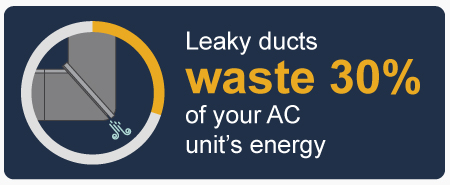After a cold winter, it’s great to finally be able to open windows and let in the fresh air. Spring is also a good time to think about home maintenance, working on improvements, and checking tasks off the to-do List. One thing to consider is the condition of your HVAC system. Spring HVAC problems can be prevented by taking regular care of a system. Common problems Portland AC units experience include:
- Leaks
- Water, debris, and corrosion
- Freezing
- Dirty ducts, filters, fans, and coils
- Worn belts, motors, and moving parts
However, these problems can be avoided with maintenance. AAA Heating and Cooling performs inspections to provide comprehensive evaluations of specific needs, and how to maintain a system. We know how to identify, resolve, and prevent common problems.
1. Corrosion and Moisture in HVAC Systems
Water can corrode wiring and components, and reduce the efficiency and lifespan of a unit. Portland receives a fair share of rain, so it’s important to address the specific needs of a system in this kind of environment. This means taking precautions to protect a system from the elements, such as covering ducts, valves, fans, and openings vents to prevent debris and moisture from entering the system. It can be expensive to address water damage, so it’s important to catch any issues at an early stage, and learn to prevent future problems.

2. HVAC Systems Can Freeze or Leak
Once spring has finally arrived and you turn on the AC for the first time, you may discover it’s not functioning at an optimal level, perhaps as a result of damage that occurred during the winter. Cold temperatures can be problematic to an AC unit because moisture in the system can not only corrode wires, coils, and valves, but also freeze and cause leaks in ducts, valves, and pumps. Refrigerant leaks not only reduce the efficiency of a system, but they can also cause damage to other components. The extra strain decreases AC performance and can be costly.
Signs of damage include:
- Inadequate and uneven cooling
- The unit constantly runs
- High energy costs
3. Not So Fresh Air
Portland showers bring spring flowers – and flowers mean pollen. Pollen is not only a common allergen, but it can also affect the efficiency of an HVAC system. Spring is a good time to check filters for needed cleaning or replacement. With a dirty filter, pollen, dust, and other allergens will be circulated into the air you breathe. Air particles like pollen can clog ducts, affect fans, and cause a unit to work harder. This increases the energy bill and could shorten the lifespan of a system.
Coils are more exposed to the elements and are a more delicate component. They can become dirty and collect debris, reducing the efficiency of the cooling cycle. The coils require the expertise of a trained technician to clean them. If the coils aren’t operating properly, the efficiency and lifespan of the entire AC unit could be impacted.
Don’t get caught sweating in the summer heat by neglecting to do routine AC maintenance in the spring. Schedule an appointment today!